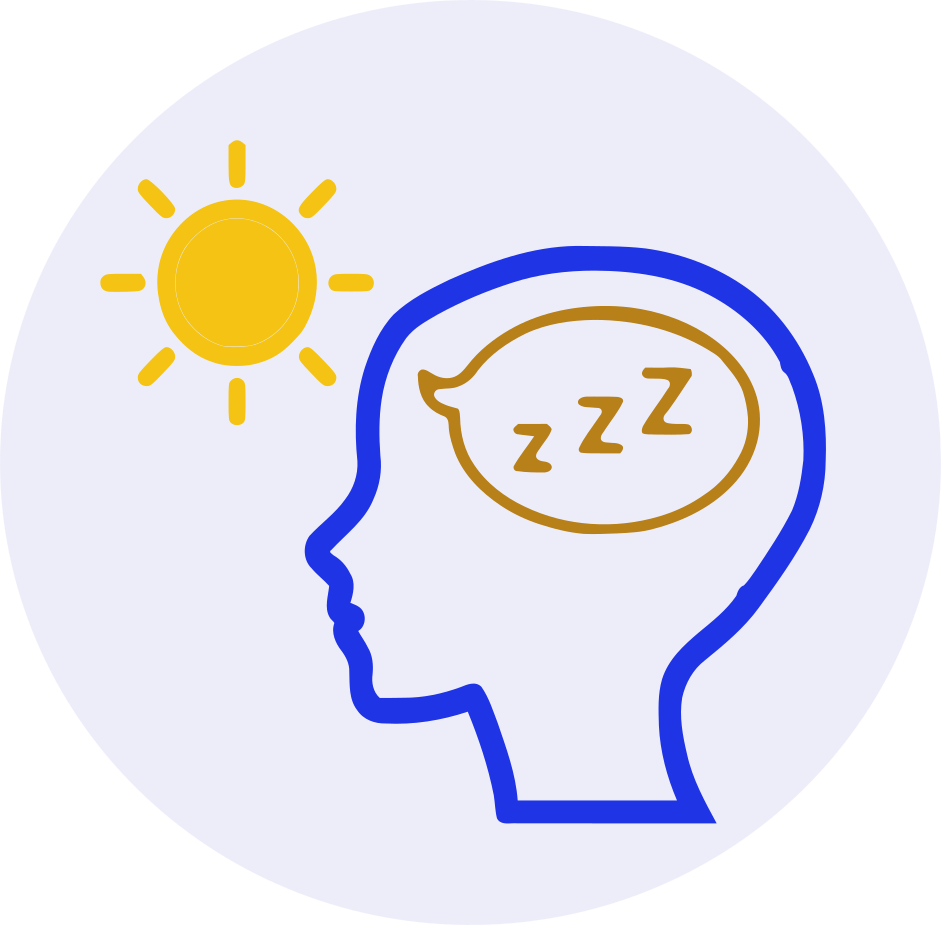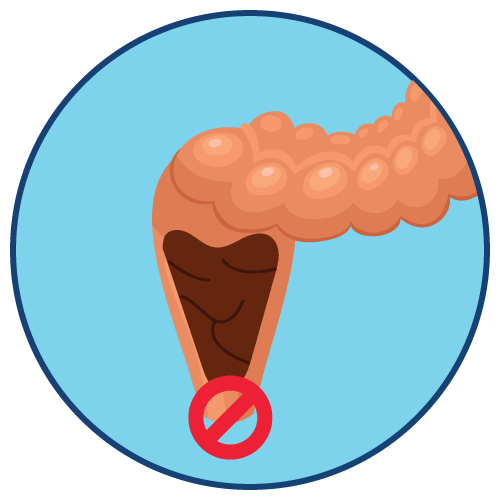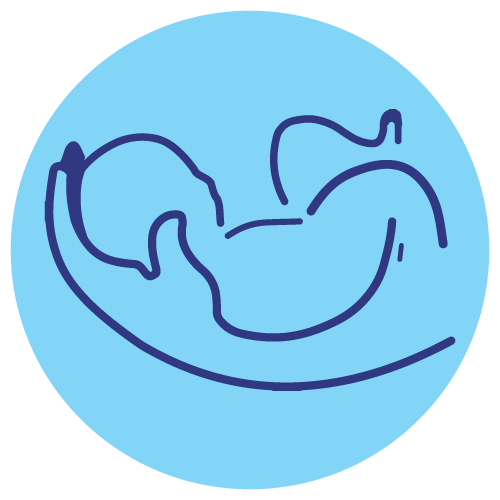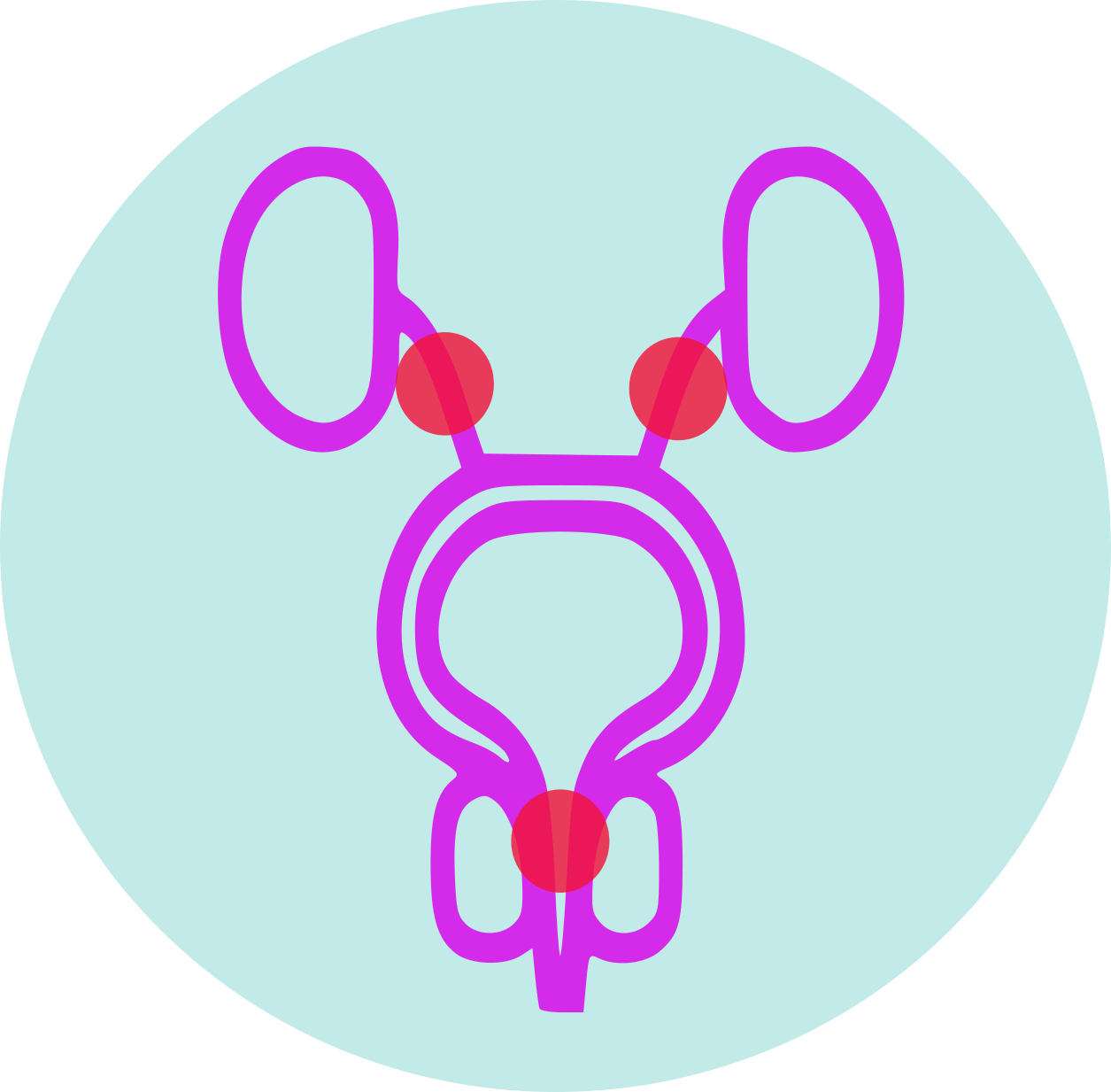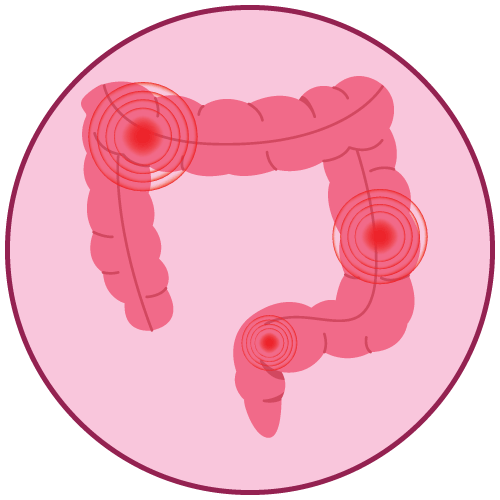| Name | Dicyclomine |
| Classes |
Smooth Muscle Relaxant |
| Diseases |
Dicyclomine
Dicyclomine is an antimuscarinic drug. The mechanism of action of dicyclomine is not completely understood. However, it is thought to work by blocking the action of acetylcholine, a neurotransmitter that regulates smooth muscle contraction in the gut. By blocking the action of acetylcholine, dicyclomine causes the smooth muscle in the gut to relax, reducing muscle spasms and cramping and improving symptoms of irritable bowel syndrome (IBS). This ultimately leads to a reduction in abdominal pain and discomfort associated with IBS.
Dosage for Dicyclomine must be adjusted to individual patient needs. If a dose is missed, patients should continue the normal dosing schedule.
Oral in adults:
- Starting dose: 20 mg four times a day. After a week treatment with the starting dose, the dose may be escalated to 40 mg four times a day, unless side effects limit dosage escalation.
- Discontinue Dicyclomine if efficacy not achieved or side effects require doses less than 80 mg per day after two weeks of treatment.
Intramuscular in adults:
- Intramuscular administration recommended no longer than 1 or 2 days when patients cannot take oral administration
- Recommended dose: 10 mg to 20 mg four times a day
Common side effects of dicyclomine include:
- Dizziness
- Drowsiness
- Dry mouth
- Blurred vision
- Constipation
- Nausea
- Vomiting
- Headache
- Nervousness
- Dicyclomine solution is intended for intramuscular use only and must not be administered by any other method. Unintentional intravenous administration may cause blood clots, inflammation of veins, and reactions at the injection site, including pain, swelling, changes in skin color, and complex regional pain syndrome.
- It is important to be cautious when using dicyclomine hydrochloride in conditions characterized by rapid heart rate, such as heart disease, heart failure, or after heart surgery, as it may further increase heart rate. Before administering dicyclomine hydrochloride, any rapid heartbeat should be investigated. Patients with heart disease should also be closely monitored, as the drug may worsen ischemia and heart attack. Care should also be taken in patients with high blood pressure.
- The peripheral effects of dicyclomine hydrochloride are due to its ability to inhibit muscarinic receptors in the autonomic nervous system. These effects may include dry mouth, difficulty swallowing and speaking, thirst, decreased bronchial secretions, dilated pupils, flushing and dry skin, temporary slow heart rate followed by rapid heart rate with palpitations and irregular heartbeats, difficulty urinating, and decreased tone and activity in the digestive system causing constipation.
- In case of overdose, dicyclomine hydrochloride may cause a muscle weakness similar to curare and possible paralysis. It should not be used in patients with myasthenia gravis unless it is to reduce adverse muscarinic effects from an anticholinesterase.
- Diarrhea may be an early symptom of partial intestinal obstruction, particularly in patients with ileostomy or colostomy, and using this drug in such cases would not be appropriate and may be harmful.
- Patients with ulcerative colitis should use Dicyclomine with caution.
- Dicyclomine should also be used cautiously in patients with enlarged prostate, as this may lead to difficulty urinating. Patients with liver or kidney problems and the elderly, who may be more susceptible to adverse effects, should also use Dicyclomine with caution.
Contraindication
Contraindicated in patients with hypersensitivity of dicyclomine or any component of the medication.
None known.
Dicyclomine is contraindicated in the following conditions-
- Infants less than 6 months of age
- Glaucoma
- Nursing mothers
- Obstructive uropathy
- Unstable cardiovascular status in acute hemorrhage
- Obstructive disease of the gastrointestinal tract
- Myasthenia gravis
- Severe ulcerative colitis
- Reflux esophagitis
 Bangla
Bangla English
English

